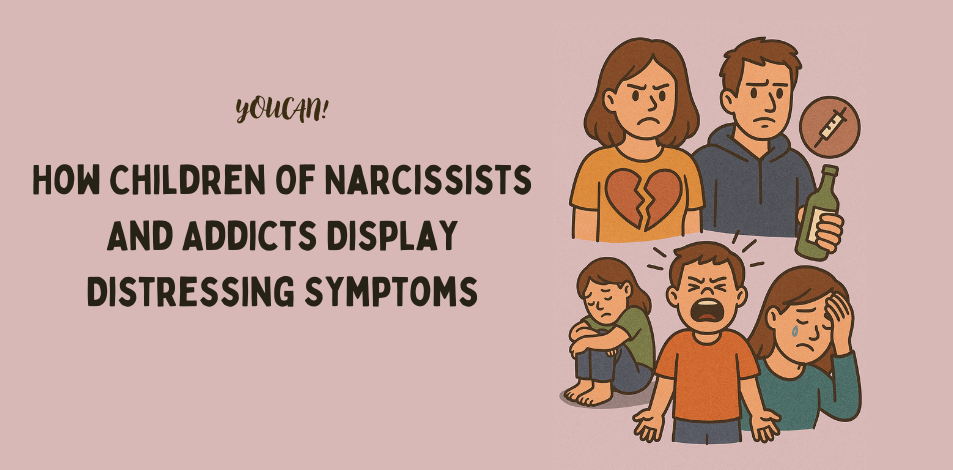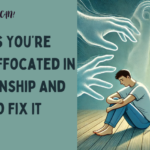
Children of narcissists often find themselves facing a confusing emotional landscape. In this exploration, we delve into the unique challenges they face, offering insights and support for those navigating their strange maze.
Children of narcissists and drug addicts (all of whom are drug addicts) grow up in a stressful and dysfunctional family environment, which in most cases leads to codependency.
Symptoms of Children of Narcissists: Due to the symptoms and defenses associated with drug addiction and narcissism, particularly poor boundaries, lack of empathy, and mood disturbance, these parents fail to see or value their children as independent individuals, value and nurture them, or provide a safe and trusting home and relationship environment.
Symptoms of Children of Narcissists: Narcissistic parents are typically dismissive, controlling, blaming, self-absorbed, and intolerant or unaware of their children’s needs and the impact of their behavior on others. Children are more susceptible to these narcissistic traits than others due to their immaturity, vulnerability, and dependence on their parents.
Symptoms of Children of Addicts
Similarly, addicts are preoccupied with themselves and their addiction. While they may be able to empathize with their children during periods of recovery, at other times they disappoint and emotionally abandon them by responding in ways that shame or ignore their children’s needs and feelings.
Related : 5 Risky Ways To Get Revenge on a Narcissist
Both types of families are characterized by interpersonal conflicts between parents and/or in sibling relationships and between parents and children. The result is that children of addicts and narcissists feel unsafe. Unfamiliar with a normal, healthy home environment, they are unaware that they feel unsafe and enter into similarly unsafe relationships.
They tend to suffer from mental health problems in adulthood, including unrecognized anxiety or chronic depression (a dystopia). Due to insecurity and parents’ inability to empathize with their children’s feelings and needs, children of narcissists and addicts become insecure and hyper vigilant. Instead of being in tune with their parents, they become in tune with them.
They learn to read their parents’ moods, desires, and needs, and their focus becomes external, ignoring their own feelings, desires, and needs. Furthermore, parents often ignore or are ashamed of their own feelings, desires, and needs.
As a result, children of narcissists and addicts tend to focus on others and feel responsible for them. They often feel ashamed of them when they are aware of their own feelings, desires, and needs. They have difficulty clearly identifying and expressing their own feelings, desires, and needs. Not surprisingly, they feel that asserting themselves is selfish. One of their parents may have labeled them as selfish, demonstrating their own selfishness. Children typically react to these parents in one of three ways:
Some children identify with the parent, who becomes a role model for them. The parent may also expect or demand that their child adopt the same values, such as reaching for the top, seeking revenge, or controlling behavior. They may also have a genetic predisposition to alcoholism or narcissism, in which case the child is influenced by nature and nurture.
Other children exhibit patterns of conformity or rebellion. In both cases, they do not experience unconditional love and do not develop their own identity. Instead, they are valued and rewarded for fulfilling a particular role (such as caregiver, mediator, or confidant) or for achieving the goals desired by their parent.
Thus, they find it difficult to identify and respond to their own values, opinions, feelings, and needs. Both conformists and rebels behave in frustrating ways. Whether they act aggressively or imitate the abusive parent, these children, like conformists, tend to have low self-esteem and fear of criticism or rejection in adulthood.
They may overachieve to win love, or fall short due to shyness or rebellion. Even successful people may not enjoy or gain satisfaction from their endeavors because they don’t express their true motives. Conformists become people-pleases, fearing rejection, disagreement, or expressing anger. In relationships, they hide their identity, acquiesce and accommodate their partner, sacrifice themselves, and take responsibility for problems.
They develop an insecure attachment style because the narcissistic or addicted parent is emotionally unavailable, and their attachment to them is not reliably secure. They may have an anxious, avoidant, or a combination of these.
Related : The Parentified Daughter: 10 Signs Your Childhood Was Burdened With Responsibilities
Children of Narcissists: Like other codependents, they become reactive rather than passive, letting others take the lead. They become dependent on others in their relationships and fear abandonment. They confuse anxiety with excitement or intensity and continue to choose unsafe relationships because they identify with their childhood relationship with an addicted or narcissistic parent.
Recovering from this childhood legacy requires treatment for codependency, including overcoming shame, setting boundaries, and developing independence and self-love. For more information on dealing with a narcissistic partner, sibling, mother, or father, follow the steps in “Dating, Loving, and Leaving a Narcissist: Essential Tools for Improving or Leaving Narcissistic and Abusive Relationships.”




